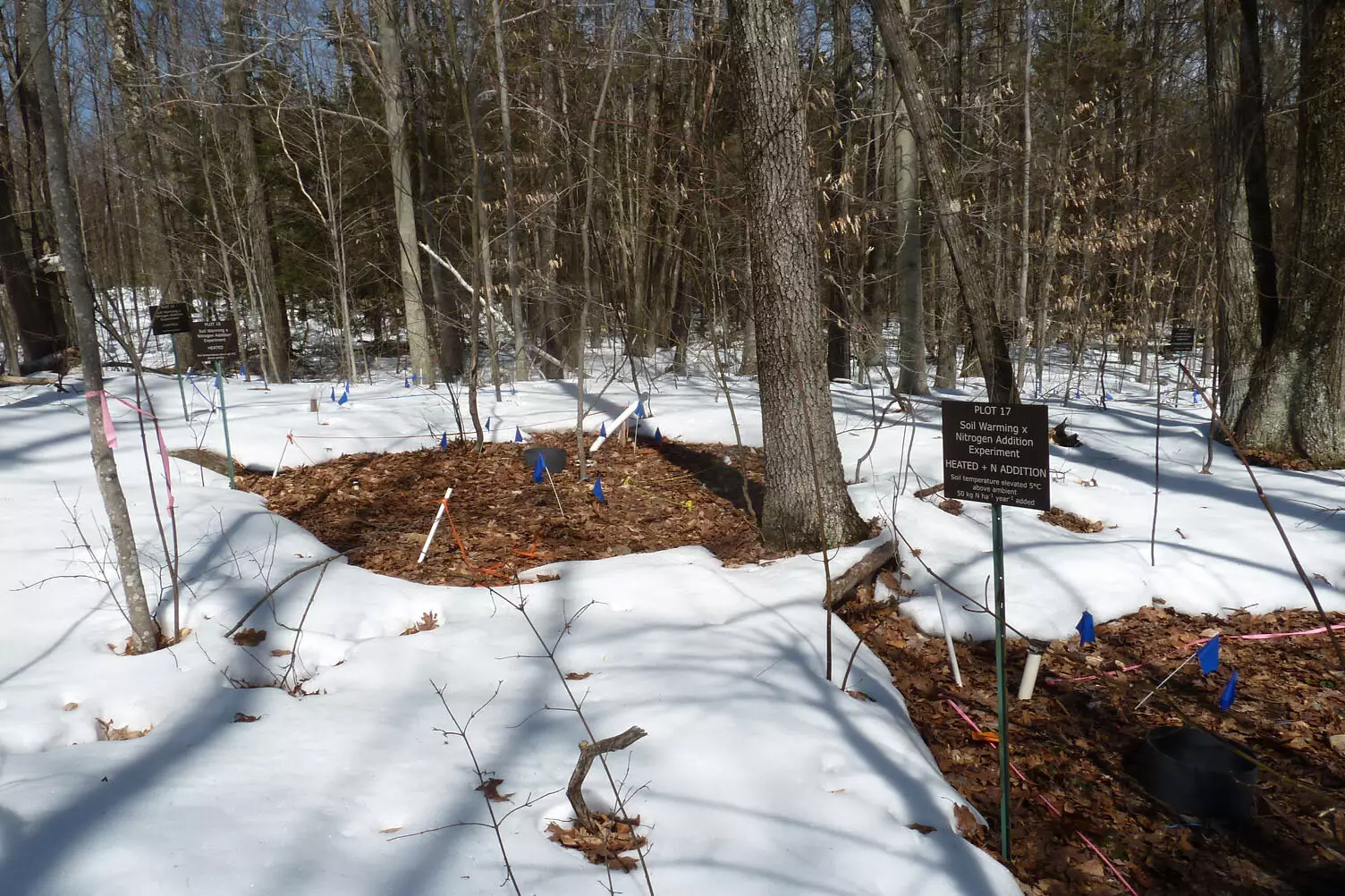New England’s forests are grappling with serious environmental pressures, primarily rising temperatures and increased nitrogen deposition, both of which stem from human-induced factors like climate change and fossil fuel combustion. While previous research often examined these issues in isolation, a groundbreaking study from the University of New Hampshire (UNH) takes a holistic approach to understand their combined impact. By looking at how rising temperatures and nitrogen levels interact, scientists have revealed that the stability of carbon storage in these unique ecosystems may not be as threatened as earlier studies suggested. This new perspective could have broad implications for environmental conservation and policy-making in the region.
The aforementioned study, recently published in *Nature Ecology & Evolution*, stands out as one of the longest and most comprehensive examinations that explored multiple environmental change pressures in a coordinated manner. Co-led by Melissa Knorr, a lab research supervisor at UNH, and Serita Frey, a distinguished professor, the team utilized a 16-year dataset from Harvard Forest, a recognized Long-Term Ecological Research site in Massachusetts. By subjecting soil to a consistent warming of 5°C and nitrogen fertilization at a specified rate, they were able to gauge how these factors would influence carbon dynamics over time.
The uniqueness of this approach lies in its recognition of the role of biological processes within the soil. Contrary to the prevailing narrative that warmer temperatures lead directly to carbon loss, researchers have unveiled a more nuanced reality. The combination of increased nitrogen and warmer soils does not merely exacerbate carbon loss; in fact, it paves the way for new carbon accumulation through enhanced plant growth and root turnover. This discovery challenges entrenched assumptions within ecological research and offers a more optimistic outlook on forest carbon storage stability.
One of the most significant findings from the UNH study is the importance of plant-soil interactions. It highlights how natural processes like root turnover contribute substantially to carbon inputs in the soil. As plants grow and their roots decay, they release organic matter that can be stored as soil carbon, effectively mitigating the potential carbon losses caused by warmer temperatures. Frey’s insights into the intricate dynamics of plant microbial activity—where increased nitrogen leads to heightened plant growth and root turnover—reveal a complex web of ecological interactions that inform us on how these systems function, making them crucial for forest health and carbon sequestration.
The Regional Context of Environmental Challenges
New England has witnessed significant climatic changes over the last century; specifically, average temperatures have risen by 1.7°F. While there are indications that nitrogen deposition rates are beginning to decline, they still remain significantly elevated—five to six times higher than pre-industrial levels. This excessive nitrogen not only stresses forest ecosystems but also poses a risk to water quality through acidification, raising alarms about the long-term health of these environments. The UNH team’s findings underscore the necessity for sustainable forest management practices, especially in a region that has historically seen high nitrogen deposition.
The implications of this research extend far beyond academic curiosity; they offer actionable insights for conservationists and policymakers. By shifting the focus from a single-factor analysis to a more integrated approach, this study provides robust evidence that can help reshape conservation strategies. Understanding the multi-faceted relationship between temperature, nitrogen deposition, and soil carbon stability can enhance ongoing efforts to mitigate climate change through effective forest management practices. It opens up avenues for improving forest resilience, allowing ecosystems to better absorb CO₂ and thus play a vital role in climate regulation.
The collaborative effort from the UNH researchers highlights the critical importance of considering multiple environmental stressors when evaluating forest health. As climate change continues to unfold, this research serves as a guiding light for future ecological studies aimed at preserving New England’s forests and ensuring their sustainability amid a changing climate. The findings illuminate a path forward, emphasizing that a more integrated understanding of ecological dynamics is essential to combat the pressing challenges posed by environmental change.


Leave a Reply